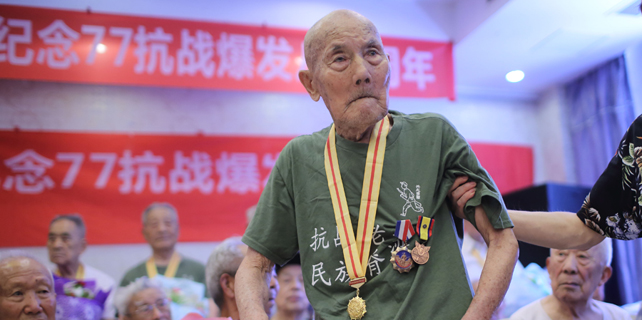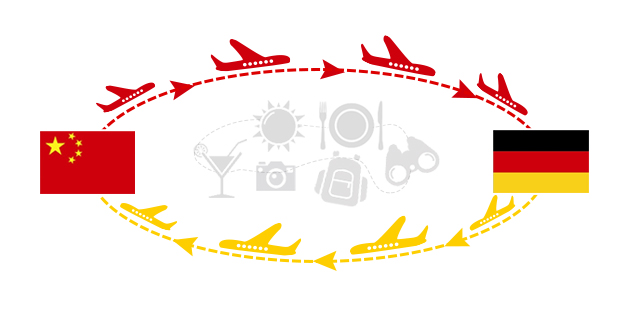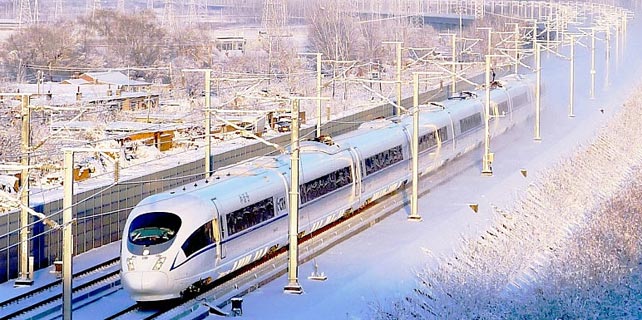What they say
International experts tell China Daily their expectations for the G20 Hamburg Summit on Friday and Saturday, which will be attended by President Xi Jinping.

Bob Wekesa, researcher with the Wits Africa-China Reporting Project, South Africa
Since the Hangzhou summit, China has steadily maintained relations with Africa and in some instances, increased the level of engagement. China's reading of Africa is correct - you ignore Africa if you do not understand its increasing geopolitical and economic importance in the world. From mineral resources, to its rising population which is virtually a market, Africa is key to global economic growth. China has a comprehensive relationship with Africa that covers most if not all productive sectors. Under a South-South cooperation agenda, African countries can expect China to be sensitive to African issues at the G20 Summit. The major point of China's pushing the African agenda is placing industrialization at the heart of Africa's development. This is important because Africa's low level of industrialization is also an opportunity for the continent to scale up.

Christopher Bovis, professor of international business law, University of Hull, United Kingdom
The role of China in this year's G20 Summit will focus on three priorities:
1. Plurilateralism in international trade, where free trade can be based upon plurilateral relations rather than multilateral and bilateral structures, taking into account common denominators and avoiding the effort of finding country-specific priorities that dilute free trade principles, perpetuating protectionism and nontariff barriers.
2. Transitory investment strategy, where the transition of Chinese investment strategy from an economic plan that has focused on traditional industries, energy and infrastructure and that has been served through sovereign funds, to a strategy that focuses on services and high value interests served primarily through private capital.
3. Renminbi internationalization, where Chinese investment and free trade policies are indissolubly linked with the agenda of renminbi internationalization, which will provide a blueprint for sustainable development aiming to deliver energy efficiency and accelerating development of the services sector, particularly financial services, improving innovation in agriculture and industrial sectors and establishing a more balanced and sustainable trade.

Jon R. Taylor, professor of political science at University of St. Thomas, Houston, Texas
The Hangzhou summit confirmed the necessity for the G20 to build a consensus for long-term and innovative growth. The summit offered a platform for promoting China's economic development model, including the Belt and Road Initiative and the Asian Infrastructure Investment Bank.
China played a central, if not pivotal, role at the Hangzhou summit. China's 2016 G20 presidency offered the nation the opportunity to demonstrate its strong commitment to economic globalization and mutual cooperation. China's role at the Hangzhou G20 was marked by an interest in pursuing structural reform, trade, investment and sustainable development. There will continue to be pressure at the Hamburg G20 Summit to demonstrate what was discussed last September in Hangzhou: the need for coordinated leadership on both global economic governance and the need to defend multilateral institutions. Those conversations were emphasized during the Hangzhou G20 Summit and will clearly influence the Hamburg G20 Summit.
China's role will be to remind the summit participants that economic globalization can be a win-win prospect and that China's experience demonstrates that there are successful - and inclusive - economic development models beyond those offered by the West.

Kerry Brown, professor of Chinese studies at King's College London and director of its Lau China Institute
The 2016 G20 was most important because of the symbolism - the first convening of such a meeting within China, signaling that China is a major geopolitical power now. This goes hand in hand with the issue that was central to Hangzhou - discussions of the impact of globalization. In the period since then, the global situation has grown even more complex, and China's status has risen. So in many ways, holding the meeting a year ago in China was opportune. It marked what no one really appreciated at the time, a moment when China became the world's core defender of globalization and free trade.

Rana Mitter, director of the University of Oxford China Centre
Last year, China's hosting of the G20 in Hangzhou provided a symbolically important moment, as it was the first time that the world's second-biggest economy had hosted this gathering. Also important was China's role in taking on discussions on climate change following the Paris accord of December 2015. This year, China will need to continue to play a role in stressing the importance of free trade and open economies. President Xi's language used at Davos in early 2017 was welcomed by many as showing the right sort of rhetoric against protectionism. It is important that China shows it is genuinely opening-up. The G20 would be a good opportunity to make its intentions clear.

Robert Kagiri, director of the Centre for Strategic Policy Management at the Africa Policy Institute, Nairobi, Kenya
The last G20 Summit was the last official visit by then-US president Barack Obama and has heralded the beginning of significant changes from the West since the coming of Donald Trump in the United States and the effects of Brexit, which have made both major powers move further away from globalization and more toward an isolationist stand. The East, on the other hand, with the rise of China as the key driver of globalization as evidenced by President Xi Jinping's keynote address at the World Economic Forum, and the hosting of the Belt and Road Forum for International Cooperation, has moved in the opposite direction and in so doing underscored China's important role in championing globalization and rebalancing trade to benefit the less-developed economies.
I think the issues of climate change, free trade and global migration will dominate the upcoming summit. China will be spearheading global economic growth through a more inclusive approach and preferably under the Belt and Road Initiative.

Ted Carpenter, senior fellow of defense and foreign policy at the Cato Institute, Washington, DC
The forthcoming G20 Summit gives China another significant opportunity to make a constructive contribution to global economic and diplomatic progress. With the United States adopting a more aloof, nationalistic stance (especially on such topics as the Trans-Pacific Partnership and the Paris climate accord), other nations are looking to Beijing to fill at least part of the new leadership gap. Last year's summit provided ample signs that China is prepared to play a more active role in that respect.
(China Daily 07/07/2017 page3)









